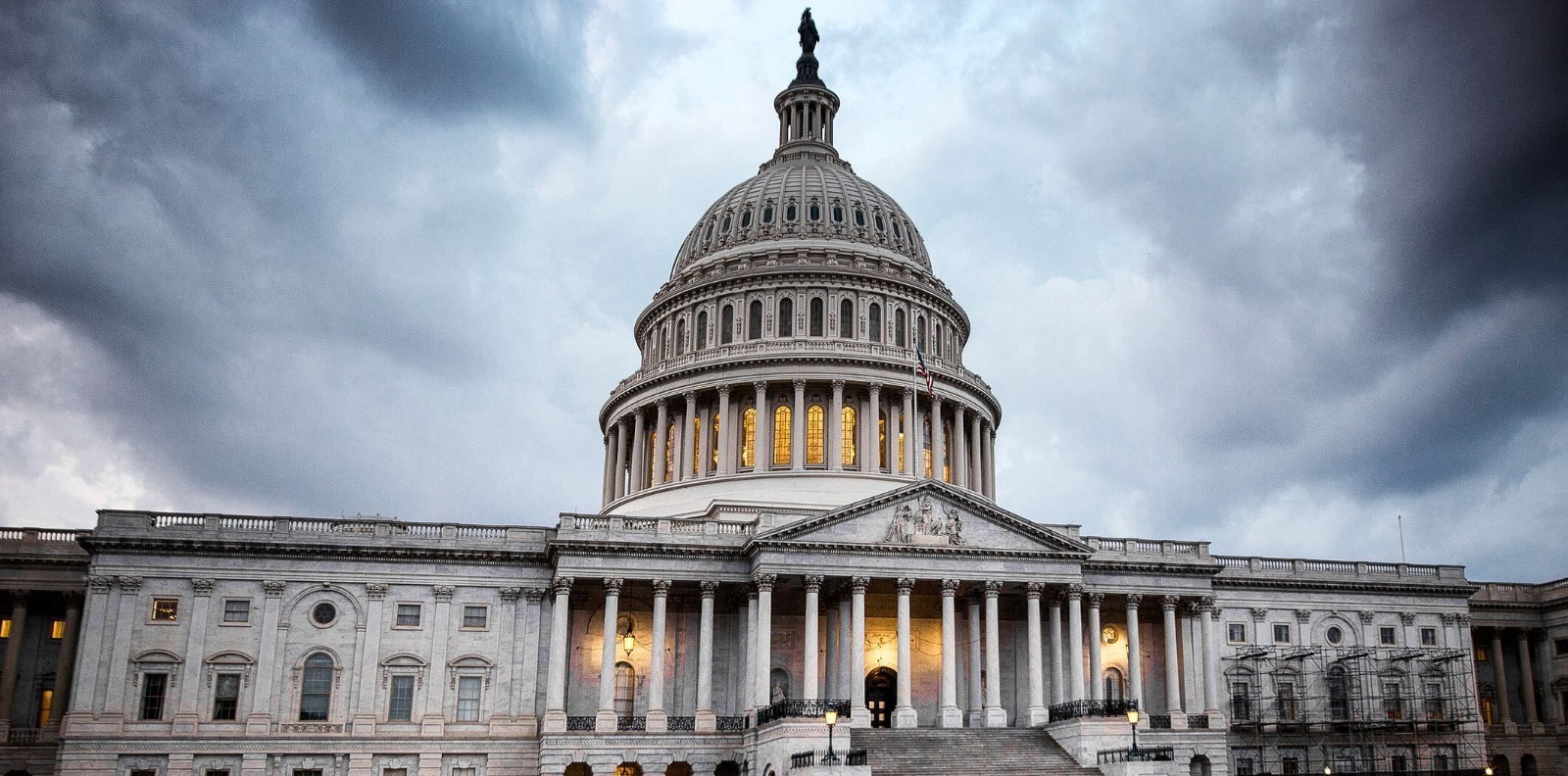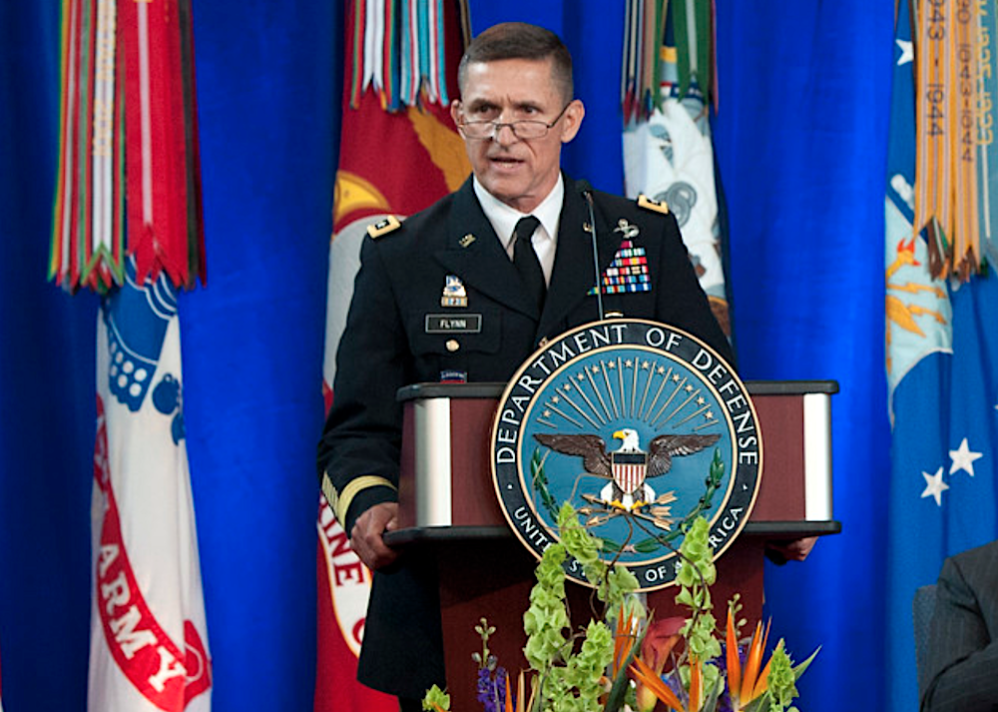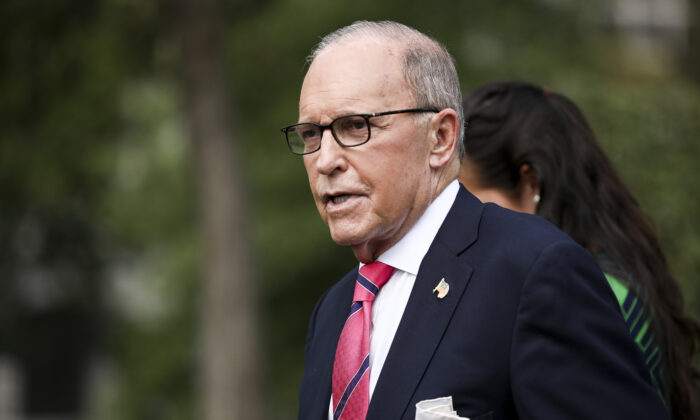Published Date: May 25th, 2020
WEEKLY REPORT
TRUTH///AWAKENING///DISCLOSURE
U.S. WEAPONIZED SURVEILLANCE, JUDGE SULLIVAN’S APPEALS COURT ORDER, KUDLOW PREDICTS RECORD ECONOMIC REBOUND
New QAnon Post, Jordan Peterson Uncensored, US Reopens, Suicide Increase Reported, Obama Gate News, Covid 19 Truth, Earthquake Swarms, Earths Magnetic Field, Global Famine Predictions, The Voynich Code, Cobra Dragon Endgame, Staying Conscious

How The Obama Administration Weaponized Surveillance Laws To Target Trump
The drip-drip-drip of newly declassified documents related to the Trump-Russia investigation, together with recent reports that a classified leak against former National Security Advisor Michael Flynn might not have come from an unmasking request, leaves little doubt that the Obama administration weaponized federal surveillance laws to target Trump associates and undermine the incoming administration.
The story thus far is complex, but it reveals a disturbing abuse of power by the Obama administration that suggests congressional reform of federal surveillance laws is needed to ensure this never happens again.
The latest declassified document, an email written by former White House National Security Adviser Susan Rice detailing a high-level Oval Office meeting on January 5, 2017, directly implicates then-President Obama and other top officials in the targeting of Flynn, including then-Vice President Joe Biden and fired Federal Bureau of Investigations Director James Comey.
According to Rice’s bizarre email, which she wrote to herself as President Trump was being inaugurated on Jan. 20, 2017, Comey told Obama and Biden he had “some concerns that incoming NSA Flynn is speaking frequently with Russian Ambassador Kislyak,” and that “the level of communication is unusual.” How did Comey know this? Because the FBI had been spying on Flynn as part of a counterintelligence investigation it launched in August 2016.
Flynn’s conversations with the Russian ambassador became national news after someone in the Obama administration illegally leaked to Washington Post columnist David Ignatius, who revealed in a Jan. 12, 2017, column that Flynn had spoken to Kislyak several times on Dec. 29, 2016.
That touched off an effort by Republicans to find out who leaked to the Post. Last week, responding to a request from Sens. Ron Johnson (R-Wis.) and Chuck Grassley (R-Iowa), acting Director of National Intelligence Richard Grenell released a list of former senior Obama administration officials who requested the unmasking of Flynn between Nov. 30, 2016, and Jan. 12, 2017.
Appeals Court Order In Michael Flynn Case Bodes Well For Him, Poorly For Judge Sullivan
Retired Lt. Gen. Michael Flynn and his legal team, led by attorney Sidney Powell, received promising news Thursday from the D.C. Circuit Court of Appeals. In a rare move, a three-judge panel ordered Judge Emmet Sullivan, the presiding judge in the long-running criminal case against Flynn, to respond to Powell’s petition for a writ of mandamus. In that petition, Powell asked the appellate court to order Sullivan to grant the government’s motion to dismiss the criminal charge against Flynn. While Thursday’s order does not guarantee Flynn a win, the signs are hopeful.
To understand why requires some laws plaining, so let’s start with the background and then move to the procedural niceties in play.
On Jan. 24, 2017, just days after Donald Trump’s inauguration as our country’s 45th president, FBI agents Peter Strzok (since fired) and Joe Pientka questioned then-National Security Adviser Flynn, about Flynn’s December 2016 telephone conversations with Russian Ambassador Sergey Kislyak. More than 10 months later, after the appointment of Robert Mueller as special counsel and under threats from Mueller’s team to target his son, Flynn pleaded guilty on Dec. 1, 2017, to making false statements to the FBI agents in violation of Section 1001.
Following his guilty plea, Flynn cooperated extensively with the special counsel’s office. With his cooperation nearly complete, the government informed the presiding judge, Sullivan, that the case was ready to proceed to sentencing. On Dec. 18, 2018, Flynn appeared with his attorneys from the law firm Covington and Burling for sentencing.
Although the government had recommended a sentence of no prison time for Flynn, Sullivan berated Flynn and questioned whether Flynn might have even committed treason. After Sullivan suggested Flynn might see jail time if sentencing proceeded, Flynn acceded to the longtime judge’s suggestion that sentencing wait until his cooperation with the government was complete.
With Powell, the Flynn Case Took a Turn
But then in June 2019, mere weeks after the closing of the special counsel’s office and resignation of Mueller, Flynn fired his Covington and Burling lawyers and hired Powell. After requesting and receiving some delays to familiarize herself with the case file, Powell began shaking things. She filed a motion to compel and for sanctions, claiming the government had withheld material exculpatory evidence.
The lead federal prosecutor, Brandon Van Grack, a holdover from the special counsel’s office, assured the court that all material exculpatory evidence had already been provided to the defense counsel. Sullivan agreed and denied Powell’s motion to compel.
Powell would later file several additional motions, including a motion to dismiss the criminal charge against Flynn based on prosecutorial misconduct. Powell also filed two separate motions for “leave of court,” or permission from the judge for Flynn to withdraw his guilty plea.
Throughout her various motions, Powell exposed several problematic or suspicious circumstances concerning the investigation and prosecution of Flynn. For instance, Powell highlighted how the government had failed to provide the original FBI 302 interview summary. She also exposed several significant changes made to latter iterations of the 302 interview summaries, calling into question the accuracy of the summary form.
The public would later learn that Attorney General William Barr apparently shared some of Powell’s concerns because he appointed an outside U.S. attorney, Missouri-based Jeff Jensen, to conduct a review of the Flynn investigation.
In late April 2020, Powell began seeing the fruits of that investigation, when Jensen turned over documents previously withheld from Flynn’s legal team. Soon after, the public learned of these details when Powell filed the documents with the court, as supplements to her motion to dismiss the charges against Flynn based on egregious prosecutorial misconduct.
Among the material provided to Powell was an FBI closing memorandum, documenting the FBI’s Jan. 4, 2017 decision to close its investigation into Flynn for potential Russia collusion. But text messages provided to Powell revealed that the “7th Floor,” which referred to FBI leadership, had put the brakes on closing the investigation.
A second set of documents Powell received included handwritten notes by then-FBI Director Andrew McCabe and the former assistant director of the FBI Counterintelligence Division, Bill Priestap. Priestap’s handwritten notes proved devastating to those investigating Flynn. “What is our goal? Truth/admission or to get him to lie, so we can prosecute him or get him fired?” Priestap wrote.
Then in a shocking development one week later, on May 7, 2020, federal prosecutor Van Grack withdrew from the case, and the U.S. attorney filed a motion to dismiss the criminal case against Flynn. In its motion to dismiss, the D.C. U.S. attorney’s office explained that Jensen’s review had uncovered new evidence and that the Department of Justice no longer believed that Flynn’s Jan. 24, 2017 statements to the FBI agents — even if they were false — were material. The purportedly false statements were not material under Section 1001, the government explained, because there was no valid investigative purpose for questioning Flynn about his conversations with the Russian ambassador.
Kudlow Predicts Record Economic Rebound In Q3: ‘Biggest Growth Quarter In American History’
White House economic adviser Larry Kudlow said that, as America’s economy opens up, output in the third quarter could surge by 21.5 percent, which he said, if it materializes, would make it “the biggest growth quarter in American history.”
Kudlow, speaking at a White House meeting Wednesday with the governors of Arkansas and Kansas, based his comments on revised economic estimates by the Congressional Budget Office, which predicted a second-quarter annualized contraction of 37.7 percent that the presidential adviser called a “predictably rough pandemic contraction.”
As states have imposed restrictions on work and travel, the second quarter of 2020 has been widely predicted to be the worst in American history, with Federal Reserve Chairman Jerome Powell recently estimating gross domestic product (GDP) in Q2 would fall by between 30 and 40 percent.
But as states begin to lift lockdowns, there are signs of green shoots in the economy.
Arkansas Gov. Asa Hutchinson, a Republican, told President Donald Trump at the meeting that his state is “back to work” and that the state’s sales tax revenue will likely bounce back faster than expected.
“We’re back to work today. All of our retail stores are open, all of our retail establishments totally are open, our gyms are open. Our barbers are open, our restaurants,” Hutchinson said, adding that some restrictions like limits on occupancy remained in place.
“We’re emphasizing associate social distancing, but we’re at work,” he said.
For that reason, Hutchinson said he now projects the state’s sales tax revenue will be down only 5 percent, not the 10 percent he earlier projected.
“We’re going to open up. I call it ‘transition to greatness,’” Trump said, adding, “and when Larry Kudlow tells you the numbers, those are really surprisingly good numbers.”
“I think you’re going to have a very good fourth quarter,” Trump added, calling the third quarter “a great transition period.”
“States are opening up, some rapidly, safely,” the president insisted.
Kudlow, citing the Congressional Budget Office, then predicted 21.5 percent quarterly annualized GDP growth, saying, “Which would actually, if it came true, would be the biggest growth quarter in American history, or since the data were compiled.”
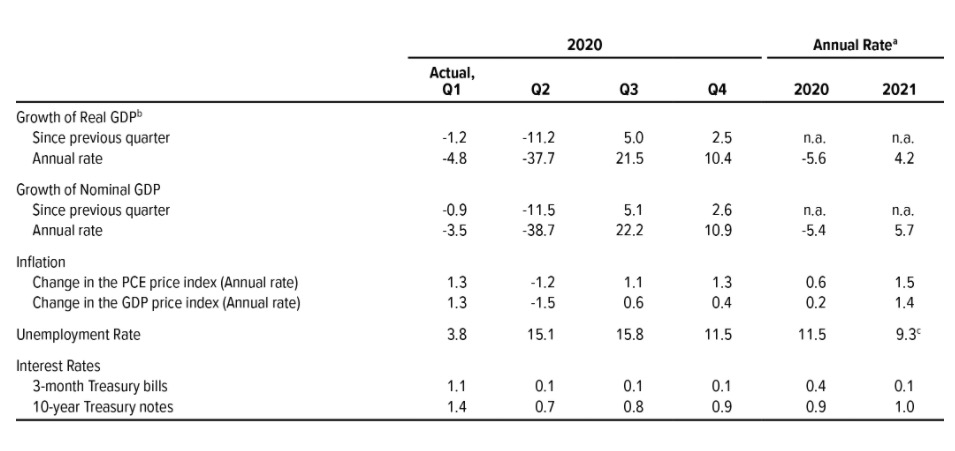
A broad shutdown of the country in mid-March to contain the spread of COVID-19, the respiratory illness caused by the Chinese Communist Party (CCP) virus, has resulted in the worst unemployment since the Great Depression.
Millions more Americans filed for unemployment benefits last week as backlogs continue to be cleared and disruptions from the virus unleash a second wave of layoffs, pointing to another month of staggering job losses in May.
Initial claims for state unemployment benefits totaled a seasonally adjusted 2.4 million for the week ended May 16, the Labor Department said on Thursday. This brings the total number of first-time jobless applications to 38.6 million in the nine weeks since the pandemic hit America’s economy.
The economy lost a record 20.5 million jobs in April, on top of the 881,000 shed in March.
Still, initial jobless claims have been gradually declining since hitting a record 6.867 million in the week ended March 28.
Vice President Mike Pence told Trump at Wednesday’s meeting that his team was working with states to reopen safely.
“I promise you, this entire team is going to continue to work with governors around the country, at your direction, until we bring the American economy all the way back, as you often say, ‘bigger and better than ever before.’”
This Week’s Global News At a Glance
Digital Currencies Could Threaten US Geopolitical Power, Warns JPMorgan. So goes the stark warning from analysts at the U.S.’ largest bank, JPMorgan Chase in a new report. While the analysts do not anticipate the dollar losing its status as global reserve currency anytime soon, they pointed to some of the weaker links in the currency’s dominance — including in trade settlement and the SWIFT messaging system. SWIFT was notably a key lever in imposing sanctions on the Iranian regime, falling into line with the U.S. administration and suspending access for Iranian banks back in 2018. This caused tension with the European bloc, where finance ministers had attempted — and ultimately failed — to exempt the cross-border payments network from the restrictions. Some contend the SWIFT suspension violated European Union laws. Were countries able to circumvent SWIFT, JPMorgan notes, the United States would find itself less able to achieve its geopolitical strategic goals, which in part relies upon the greenback’s global dominance.
Since the beginning of the coronavirus outbreak, American leftists have been repeatedly caught parroting the rhetoric of the CCP as they decried President Trump’s use of the term “Chinese Virus” as racist. Democrats have taken a distinctly “soft on China” tack, in opposition to President Trump’s increasing hawkishness, even going so far as to side with the CCP (which, remember, just put 1 million+ Muslims into concentration camps) over the White House, as the National Review pointed out in a recent article. One of the most galling examples of this phenomenon to date occurred Thursday, when former Obama-era ambassador and noted Sinophile Max Baucus, also a former Democratic Senator from Montana, compared President Trump to Hitler during an appearance in the Chinese press.
Washington State Loses “Hundreds Of Millions” To Nigerian Fraud Scheme Washington state officials admitted losing “hundreds of millions of dollars” to an international fraud scheme, originating out of Nigeria, that robbed the state’s unemployment insurance system and could mean even longer delays for thousands of jobless workers still waiting for legitimate benefits. Suzi LeVine, commissioner of the state Employment Security Department (ESD), disclosed the staggering losses during a news conference Thursday afternoon. She conceded that the amount was “orders of magnitude above” the $1.6 million that ESD reported losing to fraudsters in April. Thursday’s disclosure helped explain the unusual surge in the number of new jobless claims filed last week in Washington, which as we showed this morning was the state with the highest weekly increase in claims. The ESD disclosed that it had seen a surge in bogus claims reportedly filed by identity thieves who appeared to be targeting the extra-generous benefits available under federal pandemic relief legislation. That same day, the Secret Service issued an alert describing Washington as the top target so far of a Nigerian fraud ring “exploiting the COVID-19 crisis to commit large-scale fraud against state unemployment insurance programs.” It remains unclear how the fraudulent benefit payments made their way all the way to Nigeria.
New York City has recorded 58 days without a pedestrian traffic death, the longest stretch since the city started tracking the numbers in 1983.
After dragging his feet on marijuana legalization for years (one of the biggest complaints of Cuomo’s progressive critics is that after becoming one of the first states to approve medical marijuana, NY has basically given up on reform in that area), it looks like legalization is back on the agenda. $$$
A Pakistan International Airlines (PIA) flight en route from Lahore has crashed near Karachi airport. The aircraft, with almost 100 people on board, hit a residential district. The plane crashed in the populated Model Colony area located on the outskirts of the city, approximately two kilometers from Jinnah International Airport.It is not yet clear how many fatalities there were among those affected on the ground, but rescue workers said around 15-20 have been helped out from under rubble.
The German government has announced that people arriving in Germany from Finland are no longer required to observe a mandatory two-week quarantine. The decision comes as a number of EU countries prepare to relax travel restrictions in anticipation of the summer tourist season.
Researchers at the university of Helsinki have begun trials exploring the use of trained sniffer dogs to detect instances of coronavirus infection in the general population. It is hoped that the method will prove more effective than current testing tools. The University’s Faculty of Veterinary Medicine has joined forces with the Faculty of Medicine to measure how effectively trained dogs are able to distinguish urine samples from infected people from those who do not have the virus. Similar trials have already begun in the UK, USA, and Hong Kong, among others. Early results have suggested that dogs are able to quickly and effectively detect the presence of COVID-19. Given mounting evidence that existing tests are far from 100% effective, health authorities around the world are looking to alternative testing methods.
Since US domestic passenger carriers began operating some aircraft in cargo-only mode two months ago, they have been largely restricted to loading freight in the lower hold where baggage and shipments normally ride. On Thursday, the Federal Aviation Administration issued an exemption allowing airlines to carry cargo on seats. Airlines had requested a two year break from existing regulations, but the FAA said the exemption is only valid through the end of 2020.
As China took the first step to impose a new national security law on Hong Kong, international opposition grew Friday, with the foreign ministers of Britain, Australia and Canada issuing a joint statement of alarm about the move and the European Union calling for the need to preserve the city’s high degree of autonomy.
The arrest of Felicien Kabuga, one of the last key fugitives wanted over the 1994 Rwandan genocide, in a suburb of Paris has raised some difficult questions for France. Those committed to getting justice for the genocide victims want to know how fugitives such as Kabuga find refuge in France – and why it took so long to track him down. Kabuga, now 84, faces trial at an international tribunal after his arrest on Saturday. He is accused of being one of the organisers and financiers of the genocide carried out by ethnic Hutu extremists against Tutsis and moderate Hutus between April and July 1994, in which at least 800 000 people were slaughtered. According to the United Nations court indictment filed against him, Kabuga – once one of Rwanda’s richest men – used his fortune and business empire to facilitate the killings. France’s role before, during and after the genocide remains a matter of substantial controversy. France’s role before, during and after the genocide remains a matter of substantial controversy.
US C-17 military transport aircraft with first shipment of 50 American ventilators has landed in Moscow’s Vnukovo-3 airport. Overall, the US is aiming to donate 200 ventilators. Russian Foreign Minister Sergey Lavrov earlier pointed out that the US is delivering the equipment free of charge, just like Russia previously did with ventilators for Americans. Moreover, Russia in April sent a shipment of medical materials to help Washington to fight the coronavirus spread.
Hospital waste, human tissue, other medical waste dumped in woods, 3.5 tonnes of hazardous and infectious waste found in forest dumped outside Mexico City.
Boeing Australia presented the country’s Air Force on Tuesday with a prototype of a jet-powered drone that they hope will one day fly alongside manned warplanes while bringing artificial intelligence to the battlefield. The Loyal Wingman, at 38-foot-long (11.5 meters) and with a range of 2,000 miles (3,218.6 kilometers), will “use artificial intelligence to fly independently, or in support of manned aircraft, while maintaining safe distance between other aircraft,” according to Boeing’s website on the project. The drones will be able to engage in electronic warfare as well as intelligence, reconnaissance and surveillance missions and swap quickly between those roles, according to Boeing. The aircraft delivered in Sydney on Tuesday is the first of three prototypes Boeing is producing. It’s also the first aircraft “to be designed, engineered and manufactured in Australia in more than 50 years,” Boeing said in a statement.
The Australian government has published dozens of previously redacted pages of text relating to Cardinal George Pell. Three unredacted reports published Thursday reveal for the first time the commission’s findings into what Pell knew about allegations of child sex abuse committed by priests decades ago in the Australian state of Victoria. The commission found that, as early as 1973, the former Vatican Treasurer “was not only conscious of child sex abuse by clergy but that he also had considered measures of avoiding situations which might provoke gossip about it.” The redacted pages appeared in the final report of the Royal Commission into Institutional Responses to Child Sexual Assault, which was published in December 2017. Black lines obscured multiple pages of Case Studies 16, 28 and 35, which examined allegations of abuse in the Diocese of Ballarat, the Archdiocese of Melbourne, and the church’s mechanism to address assault claims. In 2017, the commission found former Bishop Ronald Mulkearns knew about Ridsdale’s offending from 1975 and failed to stop it. Instead, he moved him between parishes, which gave the priest access to more victims, the commission found.
While 38-year-olds Leslie and Andrew Godfrey enjoyed a five-day, 750-mile sailing passage from Sri Lanka to the Maldives, the whole world changed. Without internet access, the couple had yet to learn that Covid-19 had continued to spread, becoming a pandemic. From March 7 to 12, as they sailed across the Laccadive Sea toward the iridescent blue water of the northern Maldives, ports had begun slamming shut at a rate that no small sailboat could keep up with. The Las Vegas-based Godfreys started planning for their five-year sailing journey around the world back in college. Sonrisa, their 39-year-old Valiant 40 sailboat, is tiny by house standards. In a given year, an estimated 10,000 small boats, sailed by families and individuals, are out exploring the world’s oceans.
The death toll due to devastation caused by Cyclone Amphan rose to 72 across West Bengal of which 15 were reported from Kolkata. With thousands of people left homeless, bridges washed away and low-lying areas in waist deep water, state Chief Minister Mamata Banerjee announced a compensation of Rs 2.5 lakhs for those affected. ”I have never seen such a disaster before. I will ask PM to visit the state and see the situation,” she said. The extent of the structural damage caused by Cyclone Amphan is evident from visuals of airport hangars in Kolkata collapsing and water inundating runaways.
Three women were trampled to death during a stampede for an US$8 cash handout in Colombo on Thursday (May 21), amid growing desperation among Sri Lankans struggling to make ends meet during a coronavirus lockdown that has smashed the economy. Some 1,000 people queued outside a businessman’s warehouse for his annual handout during the Muslim fasting month of Ramadan. There was a rush for the 1,500-rupee gift – about the same amount as a labourer’s daily wage – when the gates opened. some people tried to break the queue and enter, that is when the women at the top of the queue fell and were trampled to death. Nine others were seriously hurt in the stampede and taken to hospital.
The head of Ukraine’s investigation team has said that evidence from the passengers on board flight PS752 suggests that something had happened to the plane even before it was hit by the missiles fired at it by the Revolutionary Guard. Alexander Ruvin, Director of the Kyiv Research Institute of Forensics, says evidence shows that passengers were out of their seats before the two missiles hit it shortly after taking off from Tehran’s International Imam Khomeini Airport on January 8. In an interview Ruvin said at the time of the crash the plane had not reached the altitude of 8,000 meters when seat belts are allowed to be unfastened. However, he added, finding the bodies of the passengers on the crash site with no seats means there was already a state of panic on the plane and the passengers had left their seats. It is not clear why Ruvin says people left their seats before the first missile hit. They might have done so between the two impacts since the second missile hit 30 seconds later. There is reason to believe that [something] was burning inside and black smoke was getting out through holes,” Ruvin said and added that the team did not find the lower part of the plane and all but four of the seats.
“Beloved” female giant panda Tan Tan is preparing to return home to China after 20 years of putting smiles on the faces of visitors at Kobe Oji Zoo here. The zoo announced on May 19 that the star attraction, its only panda, will be sent back to her homeland as her lease is ending. The city borrowed the panda with the aim of cheering up residents who had experienced the devastating 1995 Great Hanshin Earthquake. “Tan Tan came to Kobe to cheer up people and has been particularly loved by children,” said Hiroyuki Ueyama, the head of the zoo, on May 19. “We really appreciate what she has done.” Tan Tan, 24, joined the zoo in 2000 when she was a young panda under a Japan-China joint breeding research program, with a limited term of 10 years. The loan period was extended to July 2020. Her return date has yet to be decided as a flight to China has been unable to be booked due to the new coronavirus outbreak. According to the Panda Protection Institute of Japan, the total number of giant pandas in Japan will be nine after Tan Tan returns home: three in Tokyo’s Ueno Zoological Gardens and six in Adventure World in Wakayama Prefecture. [Depressing]
The Philippines has become the world’s largest known source of online child sexual exploitation, with endemic poverty helping drive a surge in abuse, a report said Thursday. Parents and relatives were responsible for facilitating the abuse in nearly all cases, according to the International Justice Mission aid group’s seven-year study. The combination of English fluency and high internet connectivity in the former US colony had helped make the country a “global hotspot” for child pornography, the report said. The proportion of Philippine internet addresses used to host child pornography had tripled in the three years to 2017, said the study, which based its findings on data collected by law enforcement data.
Millions of Indians were rattled by a loud boom that shook their city Wednesday — one that baffled even local cops and emergency officials. The boom was heard across the nation’s tech-capital city of Bengaluru — which has a population of more than 8 million — at about 1:25 p.m. Wednesday
Thank you to our readers and subscribers for your continued support. If you would like to further help the Great Awakening Team and our efforts, you can donate, sign up for a paid subscription, or purchase something from the GAR shop.
– The Great Awakening Team
[et_bloom_inline optin_id=”optin_6″]
FEATURE DOCUMENTARIES
DOCUMENTARY LIBRARY / 32 UNIQUE CATEGORIES / 300 DOCUMENTARIES



Inspiration
Arts /// Photography /// Music /// Videos


The Journey of Awakening



User Guide Menu
User Guide /// Our Positive Outlook /// The Big Picture /// Overview – Summary /// Topic Descriptions /// Great Awakening Map /// Deep State Map /// Programming /// Article Classification
“Hot Topics”








“ObamaGate”
FISA / SpyGate / Biden Crime Syndicate
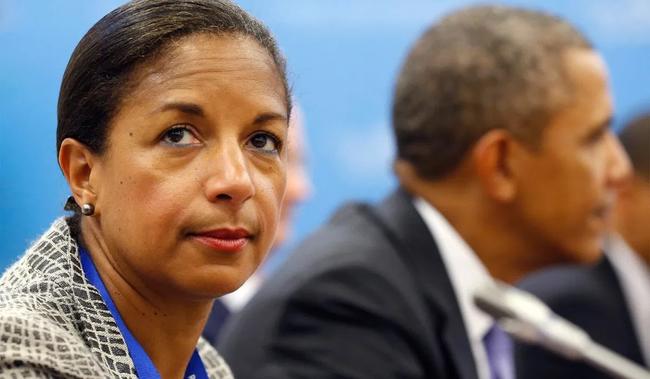
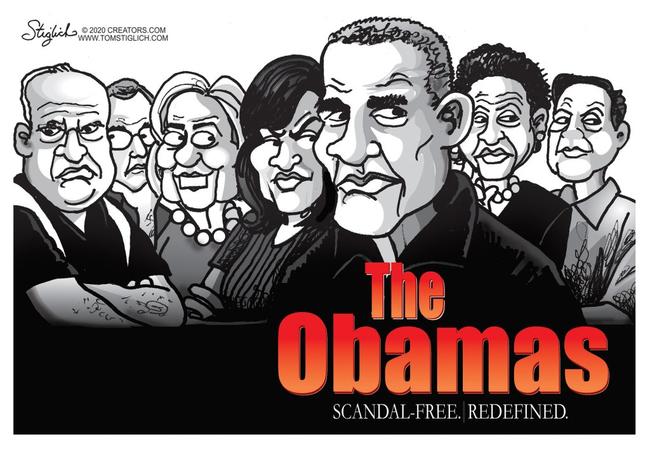

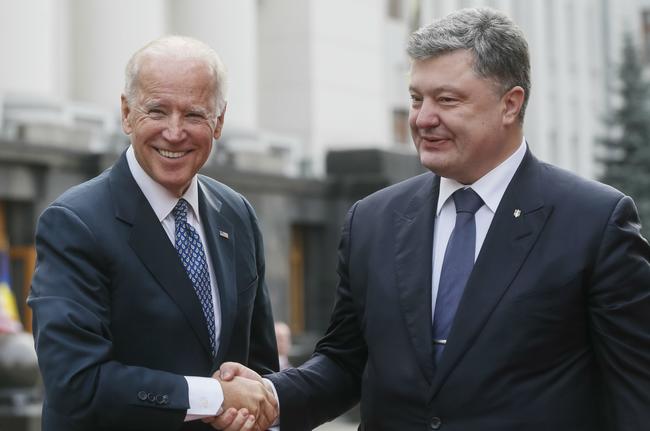
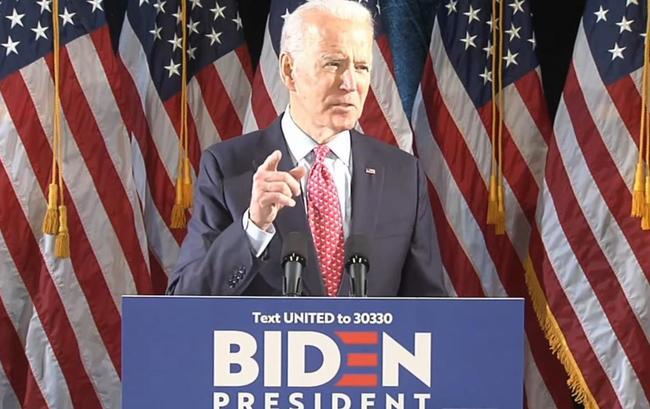


CCP COVID 19 / Vaccines
https://www.youtube.com/watch?v=QLi6ZrFp6vQ













Global Awakening
Epoch Times Spygate Map
-
Real US Economy
https://endoftheamericandream.com/archives/according-to-a-shocking-new-survey-52-of-small-businesses-expect-to-be-out-of-business-within-six-months
https://www.youtube.com/watch?v=4XrNAAf2Y1w
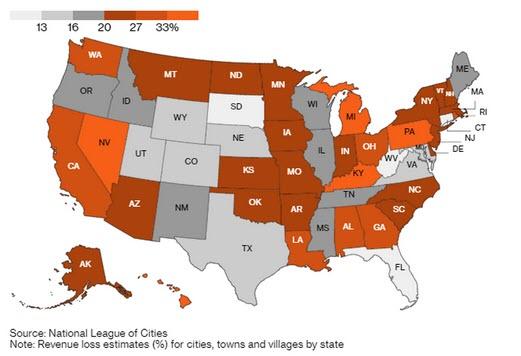




-
Global Trafficking & Corruption


More than 18,000 people are victims every year, according to the UN. But the true scale of the trade in human lives is thought to be much greater than figures suggest.
McM…

-
Geopolitical
https://www.youtube.com/watch?v=Argk05L_gJI



-
Geophysical



-
Global Weather
Sun Activity
Sunspot number: 0
Spotless Days
Current Stretch: 19 days
2020 total: 110 days (77%)
2019 total: 281 days (77%)
Active Weather
Tropical Cyclone Mangga – Cat 1 – w/v 35-50 kts 996 hPa Moving SE 6 kts Intensifying – West of Cocos Islands, Indian Ocean – The system is expected to track to the southeast and pass to the west of Cocos (Keeling) Islands during Friday. The system will then accelerate to the southeast and bring severe weather to western WA on Sunday and Monday.
Strongest EQ in Europe M5.7 Crete, Greece
Strongest EQ in North America M4.4 Idaho
2nd Strongest EQ on the Planet M5.1 Papua New Guinea
Deepest EQ M5.1 500 km Fiji
https://stillnessinthestorm.com/2020/05/zero-point-energy-can-resolve-the-climate-change-threat/



https://www.youtube.com/watch?v=oiQq9...
Subscribe! https://www.youtube.com/user/DNewsCha...…
-
Global Famine & Food Shortage



-
Health Watch
https://www.wakingtimes.com/2020/05/21/former-cbs-journalist-sharyl-attkisson-calls-out-youtube-for-censoring-factual-info-about-hydroxychloroquine/


-
True History
https://www.youtube.com/watch?v=E4i5dCIKalY



Twitter: https://twitter.com/NatureUniversum…
Cosmic Disclosure
-
Hidden Truths



-
The Event
The Ascension Prophecy of Peter Deunov



-
Spirituality
What Is “Sacred Geometry”



-
Path of Awakening



-
WATCH LIST
- Event Waves of 2020; new global pandemics, market volatility, food shortages, 30 million unemployed, massive loan defaults and foreclosures, vaccine threats and fears.
- 2020 Predictions; Global Economic Crisis beginning with failures of Goldman Sachs/Deutsche’s Bank, Global Debt Bubble Crash, US Dollar Currency Gold Standard Reset, Partial Disclosure Fake Alien Invasion / Introduction of AI Cryptocurrency controls, Mega Earthquakes, 2020 US Presidential Election, Global Protest Escalating.
- New Congressional and Senate Hearings & Witness Testimony; With the vote 51/49 not to allow witnesses in a continued Senate Trial, the vote for Acquittal was assured. Yet the House Committee Chairman/Senate Impeachment Manager Adam Schiff looks to recall old and new witnesses to continue Democratic investigations on Russia, Trump, and his administration. Look for Pelosi, Schiff, Nadler, to relaunch new investigations in March after the Democratic primaries. Guaranteed to launch the second round of Impeachment hearings in Nadler’s Judicial Committee. Watch for the Senate to counter with its own hearings and testimonies.
- Congressmen Adam Schiff, Speaker Nancy Pelosi, and Jerrold Nadler a stone-cold traitor guilty of spearheading a highly organized conspiracy to commit treason and overthrow the POTUS, Schiff is also guilty of lying testimony in front of Congress/Senate with regards to Trump’s phone call with Ukraine’s President and fomenting war with Russia based on a patently false pretext and bogus allegations. The Mueller Report exposes Adam Schiff who “Knowingly” leaked and reported false information to the press.
- Global Trade Wars are a cover for neutralizing all tariffs in order to usher in new global currencies backed by gold. The Global Reserve Banking System will be dismantled and the SWIFT Global Trading platform will be replaced with GESARA.
- Internet and Social Media Alternative News Censorship lockdown continue across all platforms. Google, FB, and Twitter. Look for President Trump, the DOJ and 30 plus US State AG’s to file class-action and anti-trust lawsuits in Federal Courts.
- New Earthquake swarms on the West Coast increase predictions for the Cascadia Subduction Zone and New Madrid Fault Line. New Government Reports on the increase in midwest earthquakes and oil fracking effects. A Russian scientist has issued a new prediction for the US to experience a 9.0 earthquake in 2019.
- UFO Disclosure is heating up, as daily sightings are being reported by US Navy and Airforce pilots. There is insider talk of a Fake Alien Invasion set for October? Timing is tied to change the MSM narrative upon negative breaking events; FISA Declass, Clinton Foundation, Comey IG Report, etc. Nick Pope reviews all the evidence.
- Antarctica continues to reveal anomalies and evidence of advanced civilizations. Disclosure of Pre-adamites going back 55,000 to 65,000 years ago. Testimony suggests well-preserved cities and advanced technologies.
- China Lake earthquakes to reveal the destruction of a large underground city. Run by the Deep State using the cover story of a secret Navy Weapons Military Base. New testimony will reveal a secret MK-Ultra mind-control training lab for 10s of 1,000s of kids held in cages.
- Facebook whistleblower blows the lid-off in a newly released Mark Zuckerberg Dossier. Sighting abuse of the child prodigy using MK-Ultra techniques, and a controlled asset of Larry Summers President of Harvard, Financial Advisor to President Clinton, connected to DARPA and CIA programs. Sheryl Sandberg assistant to Summers, COO of FB and Mark’s direct handler inside FB.
- DOJ to release of FISA Evidence on James Comey, Comey got a pass from AG Barr on leaking classified information to the press but will be indicted and prosecuted for multiple criminal violations dealing with his signing off on 4 FISA requests. This will begin the process of disclosing Spygate, and all its conspirators.
- The Structure Change / Alliance Exposure Mass Corruption Now Ready to be Revealed to the General Public, starting with economy crisis looming, closing the Federal Reserve/Central Banking System, voter fraud in key Congressional & Senate seats, FBI & DOJ false Russian collusion, and the release of 300 pages of the Carter Page FISA redactions will lead to the much greater exposure of the Obama Administration’s corruption, treason, and evil practices from the Deep State/Shadow Government.
- As of 2 Quarter 2020, the IG and DOJ Investigations have been completed by John Huber/IG/Horowitz/AG Barr on the Clinton Emails Scandal & Foundation Violations, FISA Abuse, and Spygate/Obama Administration Collusion.
- FISA Report Presidential Order to release 300 supplemental pages of redactions to AG Barr, said to be released in the Fall of 2019.
- Mass Arrests total 146,248 + Sealed Indictments, 35 US Judicial Districts (increases in indictments averaging 5,000 a month) Has been increasing at a rate of 25,000 per month since 2017.
- Continued Mass Global Resignations 11,734; Government Senators & Congressmen, Fortune 500 CEO’s, numerous Board of Directors, and Banking Execs.
- Global Peace Initiatives vs War Threats: North Korea, Venezuela, Ukraine, Iran, Syria, and Israel/Saudi Arabia signs of the total collapse in Deep State controlling influence in 3rd world governments.
- Exposure & Defeat of The Deep State/Shadow Government/Cabal/Illuminati/Syndicate
- Global Deflationary Markets Crisis / Global Currency Reset/return to the Gold Backed Standard Currency / RV / Replacement of NESARA/GESARA for SWIFT Trading System / Global Debt Jubilee / Refund of 21 to 71 trillion in confiscated Deep State/Cabal funds
- Global Trade Agreements Naturalized tariffs with EU, Stalled Talks with China, Russian, Canada, and Mexico agree to neutralize all trade in a new agreement.
- Trade War with China exposing more than just Trade, global naturalized tariffs, Technology Thefts, Political Tampering with US Elections and US Congressmen and Senator’s payoffs.
- Congress Approves Legislation to release sealed 911 documents, exposing the Deep State inside job. Trump will unseal 911 documents after the 2020 elections.
- Remaining Sealed CIA Kennedy Assassination Papers to be released, along with 911 Saudi Arabia collusion docs & Pearl Harbor papers from WWII
- Rouge Planetary System moving through our Solar System, bringing CME’s, Planet X Solar System, Nibiru, Meteorite Showers, EMP, Alien SpaceCraft Sighting, Closings of Planetary Observatories, questions regarding New Mexico’s Observatory
- Increasing Global Geophysical Volcanic & Earthquake Activity, Hawaii, Pacific Rim, Latin, and South American, Antarctica (Galactic Energy Waves increasing Sun’s activity)
- Global Geomagnetic Storms increase in larger magnitude CME’s from Sun (The 1000x Galactic Flash in the nearest star system Alpha Centauri was recorded by NASA)
- Global Weather: 2019 escalating Droughts, Hurricanes, Sahara Sand Storm, Heat Waves, Rising Oceans Levels, Flooding, Solar System Planetary Climate Change, Chemtrails / Terraforming, HAARP Weather Wars.
- Health & Wellness: Truth About Cancer, The Plant Paradox, Truth About Vaccines, Big Pharma Industrial Complex.
- Earth History: 3,000 Global Pyramids, the cover-up of Ancient Giant skeletons by the Smithsonian Institute, Ancient Civilizations Ruins discovered between 1,000 to 6,000 feet below Sea Level.
- Disclosure: Secret Space Programs, 10 Programs, DOD $6.5 – $21 trillion missing. Partial vs Full Disclosure, Alliance agreement as to Solar Warden partial disclosure.
- Science/Technology: Department of Defense suppression of 6,000 patents, reversed technology, antigravity, warp drive, zero-point energy, cures for all diseases, age regression, replicators (all foods/clothing/metals, etc.)
- NASA: Plasma Energy Cloud, Energy Waves, Galactic Flash, 26,000 Year Grand Cycle
- The Path of Awakening: Global Mass Meditation, Jared Rand participant count now over 500,000 worldwide.
DISCLAIMER: All statements, claims, views and opinions that appear anywhere on this site, whether stated as theories or absolute facts, are always presented by The Great Awakening Report (GAR) as unverified—and should be personally fact checked and discerned by you, the reader. Any opinions or statements herein presented are not necessarily promoted, endorsed, or agreed to by GAR, those who work with GAR, or those who read or subscribe to GAR. Any belief or conclusion gleaned from content on this site is solely the responsibility of you the reader to substantiate. Any actions taken by those who read material on this site are solely the responsibility of the acting party. You are encouraged to think for yourself and do your own research. Nothing on this site is meant to be believed without question or personal appraisal.
Share This Report
Have questions?
At Great Awakening Report, we are dedicated to supporting your journey toward truth and enlightenment through our specialized Coaching and Consulting services.
Coaching Services: Our coaching programs are designed to guide you through personal awakening and transformation. We offer personalized sessions that focus on expanding consciousness, uncovering hidden truths, and fostering spiritual growth. Our experienced coaches provide the tools and insights necessary to navigate your path with clarity and confidence.
Consulting Services: For organizations and individuals seeking deeper understanding and strategic guidance, our consulting services offer expert analysis and solutions. We delve into areas such as global transitions, alternative news insights, and consciousness studies to provide comprehensive strategies tailored to your unique objectives.
Embark on a transformative journey with our Coaching and Consulting services, and unlock your highest potential. To learn more and schedule a session, visit our Coaching and Consulting pages.
Thank you
Thank you to our subscribers and readers for your continued support and dedication to truth and awakening. Your encouragement, engagement, and belief in our mission make everything we do possible. Together, we are expanding awareness and helping illuminate the path forward.
If you would like to further support the Great Awakening team and our ongoing efforts to share insight, knowledge, and truth, you can DONATE HERE.
With deep gratitude,
– Great Awakening Team
DISCLAIMER: All statements, claims, views and opinions that appear anywhere on this site, whether stated as theories or absolute facts, are always presented by The Great Awakening Report (GAR) as unverified—and should be personally fact checked and discerned by you, the reader.Any opinions or statements herein presented are not necessarily promoted, endorsed, or agreed to by GAR, those who work with GAR, or those who read or subscribe to GAR.Any belief or conclusion gleaned from content on this site is solely the responsibility of you the reader to substantiate.Any actions taken by those who read material on this site are solely the responsibility of the acting party.You are encouraged to think for yourself and do your own research.Nothing on this site is meant to be believed without question or personal appraisal.
COPYRIGHT DISCLAIMER: Citation of articles and authors in this report does not imply ownership. Works and images presented here fall under Fair Use Section 107 and are used for commentary on globally significant newsworthy events. Under Section 107 of the Copyright Act 1976, allowance is made for fair use for purposes such as criticism, comment, news reporting, teaching, scholarship, and research.
COMMUNITY GUIDELINES DISCLAIMER: The points of view and purpose of this video is not to bully or harass anybody, but rather share that opinion and thoughts with other like-minded individuals curious about the subject.

